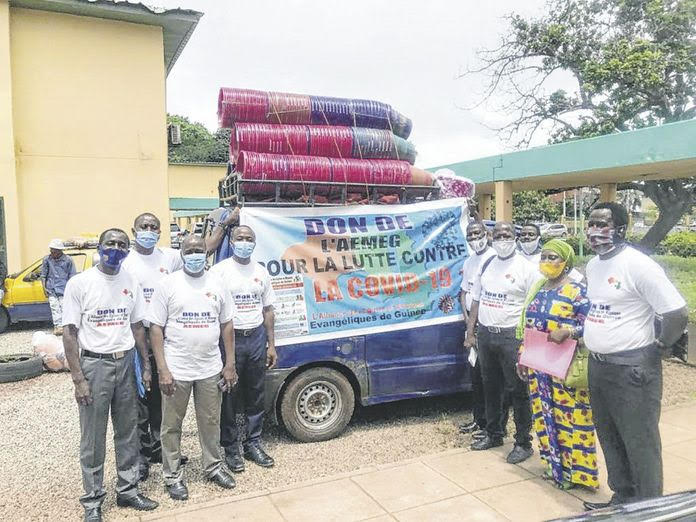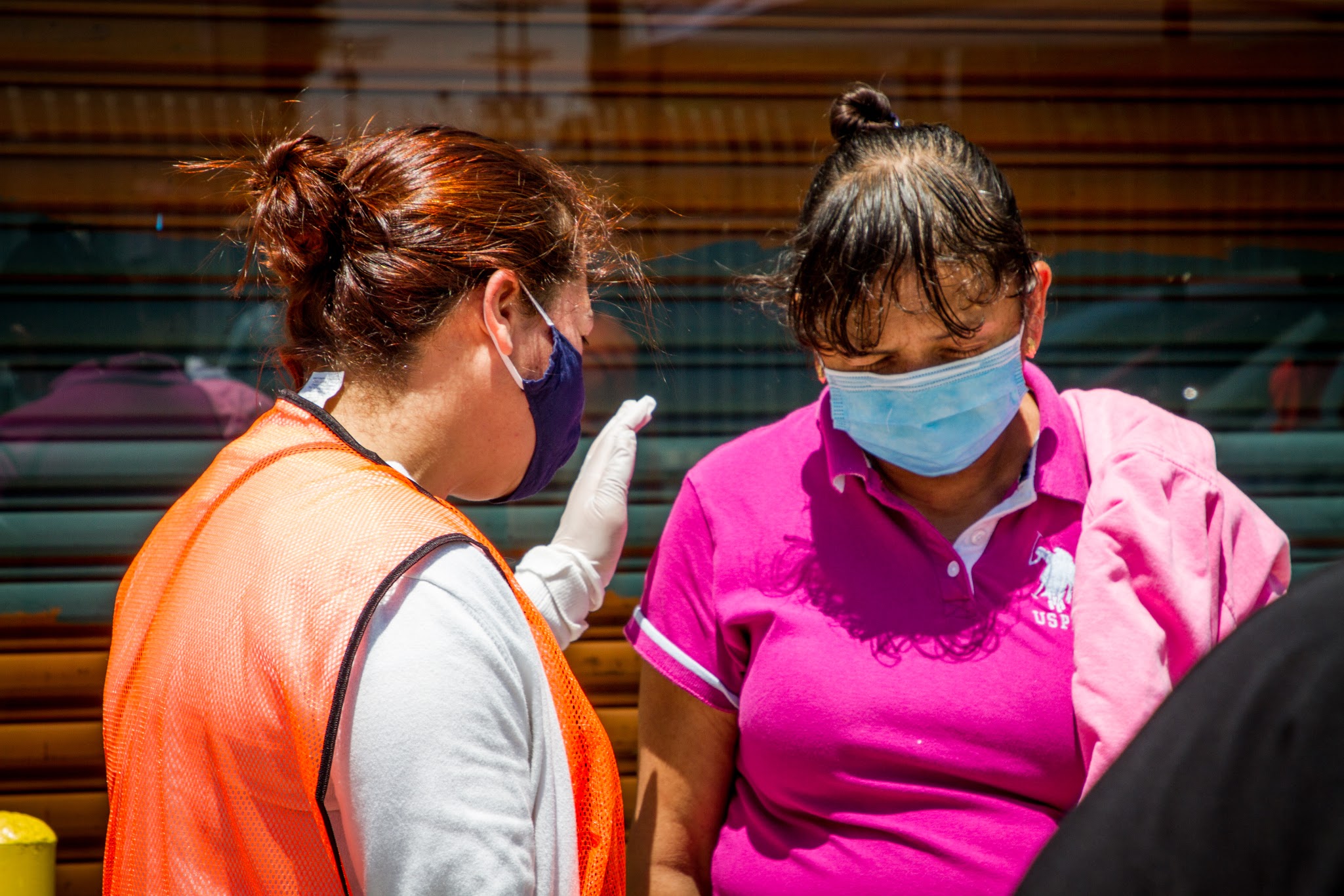When Linda and her husband Les married, they knew they wanted to start a family right away. After countless doctor’s visits and tests, they learned some disheartening news — they would not be able to conceive. Linda’s heart ached as she watched mothers push their babies in strollers at the mall. Would she ever hold a child of her own in her arms?
Linda and Les decided she would quit her job as a physical education teacher to reduce her stress. And so, after nearly 20 years in her field, Linda left her job to stay home full time. The decision proved difficult at first. Accustomed to a busy lifestyle, Linda found herself forced to slow down. She and Les began discussing adoption and grew excited about the idea.
Linda and Les both agreed they wanted to adopt more than one child. Growing up with four brothers, Les hoped to adopt a girl first. The couple researched different agencies and decided to adopt from China. They then began the lengthy process, filling out extensive paperwork and undergoing fingerprinting and background checks. After completing all the steps, they sat back, waited and prayed.
“With adoption, sometimes you wait and wait, but when you get that referral, you have to be ready to go right away,” Linda said.
In March, 2002, Linda and Les received the call they’d been praying for. There was a baby girl in China who could be theirs in a matter of weeks. They saw a photo of the darling 10-month-old girl, and they immediately fell in love. The following month, they were on a plane to China to meet her for the first time.
Linda and Les made the trip with three other families, all who were planning to adopt, too. They arrived with butterflies in their stomachs, unsure of what to expect. Though they’d seen photos of the little girl, they had no idea how big she was, so they brought outfits in various sizes for her to wear. Over the next 12 days, the couple bonded with the other families, sharing their stories. After much anticipation, they were presented with a perfectly healthy baby girl. They named her Ashley.
From the start, Ashley was an easy-going baby. She slept much of the time, allowing Linda and Les to sleep, too. They heeded the advice of other families who had adopted, limiting company in an attempt to bond with their daughter during the first critical weeks. Linda embraced her new role as a mother, thanking God for filling her arms and her heart.
Not wanting to wait too long before adopting a second child, the couple began looking into a boy from Japan. But the agency’s contact in that country did not have any babies up for adoption, so Linda and Les researched other potential countries. They looked into Kazakhstan and were told adoptions from that country would take between six to nine months. But halfway through the process, the country changed some rules, making adoption more difficult. A year passed, then two, then three. Linda and Les kept busy with Ashley, all the while praying and anxiously waiting. Linda’s father was diagnosed with cancer, and she prayed he would get to meet their new child. He passed away in September, and in January, four years after beginning the lengthy adoption process, they finally received some good news. The country had a little boy for them. The news was bittersweet, as Linda’s father would never get to meet his grandson.
With Ashley in tow, Linda and Les embarked on their trip to Kazakhstan, excited and nervous at the same time. They had not seen a photo of their son and did not know what to expect. When they reached the orphanage, known in Kazakhstan as the baby house, the workers presented them with a 2-year-old child. But they decided they wanted to meet the 10-month-old boy they’d been initially referred to.
The workers brought the infant into the room and sat him on their lap. “Do you like him?” they asked.
“Yes!” Linda and Les cried.
The couple spent a few minutes bonding with the baby and agreed to adopt him. A few weeks later, they hired an escort, who flew the baby to them. At last, the wait was over. God had answered their prayers. Their family was now complete.
Linda and Les named their son Cameron. Unlike Ashley’s early days, Cameron’s proved more challenging. Red bumps that looked like flea bites popped up all over his skin, and doctors diagnosed him with eczema. But the new parents soon learned he had scabies, a highly contagious condition. Cameron then developed pneumonia and landed in the emergency room. After a lengthy recovery process, things settled down, and the newly united family fell into a routine.
While Linda and Les loved being parents, their journey did not come without difficulty. Ashley remained easy going, but Cameron struggled with sensory issues, resisting any type of affection. As he grew older, other behavioral problems emerged. Linda, now a full-time stay-at-home mother, sometimes found herself at her wit’s end. She read countless books and took Cameron to therapists, but those doctors only encouraged behavior modification. Linda knew her son needed something more.
“I felt so alone,” Linda said. “I was really struggling.”
She then learned about the adoption support groups through Saddleback Church and decided to check one out. To her relief, she met other parents who were struggling just like her. Together, they shared stories and ideas and prayed with one another. For the first time, Linda did not feel so alone.
“It was so nice to go to a place where people knew what I was going through,” Linda said. “There is power in that. They could extend empathy because they had been there themselves.”
Through the group, Linda stumbled onto new resources, including the very insightful work by Dr. Karyn Purvis. Her book, The Connected Child, helped Linda tremendously. In reading the book and watching accompanying videos, Linda learned that traditional methods of therapy would not work with her son because of the trauma he’d endured as an infant. He faced unique challenges as an adopted child and would require a unique approach.
“I learned the behavioral issues stemmed from the trauma and disconnect Cameron faced early in life,” Linda said. “This approach taught me how to reverse and rewire his brain, allowing him to connect and letting him have a voice.”
Linda began changing her parenting techniques, approaching Cameron with newfound patience and unconditional love. She reminded him repeatedly that he was safe in their family. She continued attending the adoption support groups and reading up on how to connect with her child. Through this process, she also received healing from her own childhood, recognizing areas where she’d never connected with her family.
They love telling the children the story of how God brought them into their home and into their hearts.
Today, Linda and Les enjoy a busy life with their two adopted children. Ashley, now 16, loves drawing, playing tennis, and spending time with her friends. Cameron, now 11, is a typical active boy and loves baseball and football. He also enjoys attending Kids Small Group 401 at Saddleback and learning about Jesus. As a family, they love hiking, camping, and visiting their cabin. Linda attends the Saddleback adoption support group every Tuesday morning and also a group at the Saddleback Rancho Capistrano campus on Saturdays. She is beyond grateful for her new friends who continue to pray for her, share stories, and encourage her even on the most challenging days.
Linda and Les recognize that adoption — from start to finish — is not an easy journey. But it is a
“We wanted to be parents so badly,” Linda said. “To know you are raising a child who could have endured a very hard life, and to be able to be a positive influence on them and show them God’s love, that makes it all worth it.”
You can play a role in helping one of the 19 million children from your city or around the world awaiting adoption. Saddleback’s Orphan Care team can help you navigate the process of adoption, or, if adoption isn’t right for your family, you can still support orphans and other adoptive families in many other ways.



